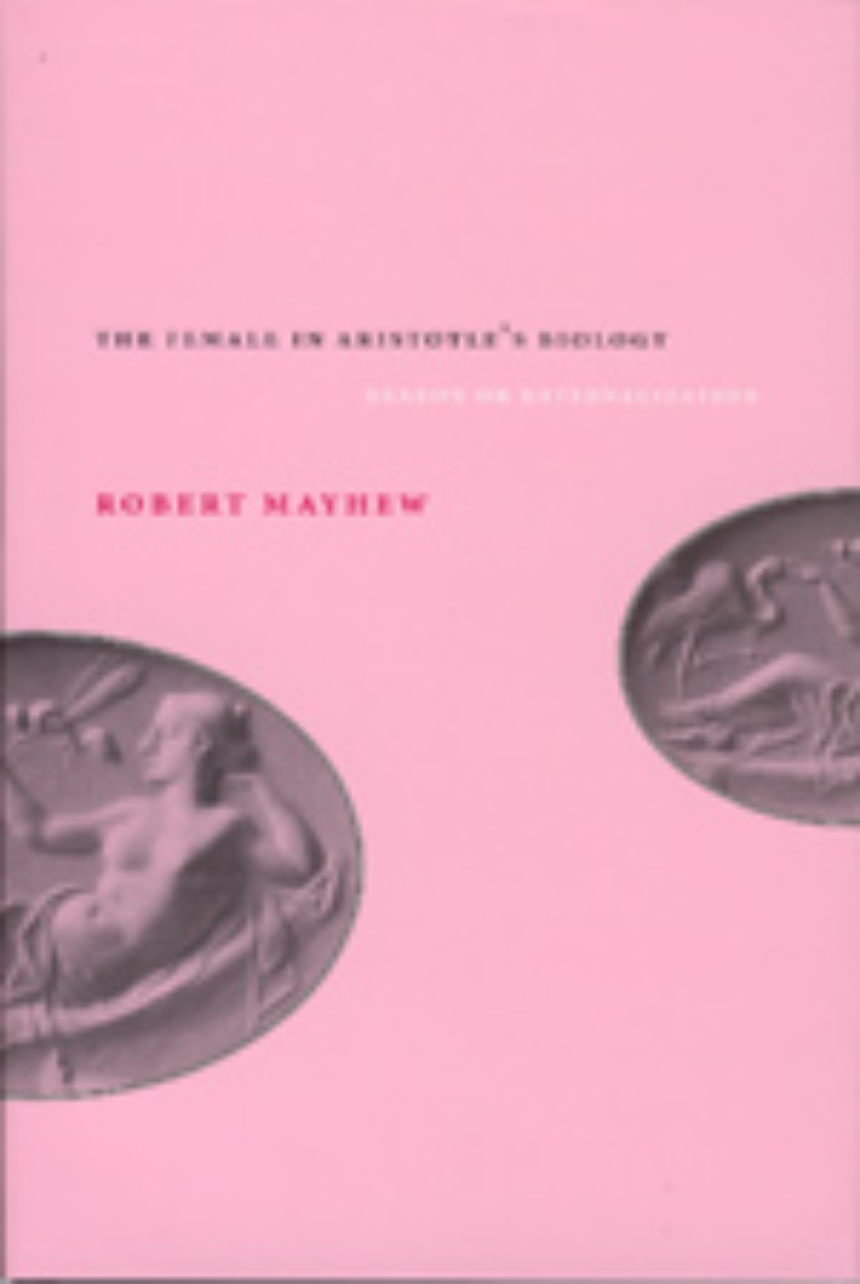The Female in Aristotle’s Biology
Reason or Rationalization
While Aristotle’s writings on biology are considered to be among his best, the comments he makes about females in these works are widely regarded as the nadir of his philosophical oeuvre. Among many claims, Aristotle is said to have declared that females contribute nothing substantial to generation; that they have fewer teeth than males; that they are less spirited than males; and that woman are analogous to eunuchs. In The Female in Aristotle’s Biology, Robert Mayhew aims not to defend Aristotle’s ideas about females but to defend Aristotle against the common charge that his writings on female species were motivated by ideological bias.
Mayhew points out that the tools of modern science and scientific experimentation were not available to the Greeks during Aristotle’s time and that, consequently, Aristotle had relied not only on empirical observations when writing about living organisms but also on a fair amount of speculation. Further, he argues that Aristotle’s remarks about females in his biological writings did not tend to promote the inferior status of ancient Greek women.
Written with passion and precision, The Female in Aristotle’s Biology will be of enormous value to students of philosophy, the history of science, and classical literature.
Mayhew points out that the tools of modern science and scientific experimentation were not available to the Greeks during Aristotle’s time and that, consequently, Aristotle had relied not only on empirical observations when writing about living organisms but also on a fair amount of speculation. Further, he argues that Aristotle’s remarks about females in his biological writings did not tend to promote the inferior status of ancient Greek women.
Written with passion and precision, The Female in Aristotle’s Biology will be of enormous value to students of philosophy, the history of science, and classical literature.
128 pages | 6 x 9 | © 2004
History: Ancient and Classical History
Philosophy: General Philosophy, Philosophy of Society
Women's Studies:
